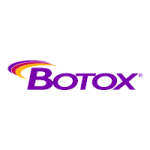FDA Pharmaceutical Approval: Glassia
Kamada Ltd. (KMDA.TA) received FDA Approval for AATD Drug Glassia.
According to the Alpha-1 Association, Alpha-1 Antitrypsin Deficiency (Alpha-1) is a condition that is passed on from parents to their children through genes. This condition may result in serious lung and/or liver disease at various ages in life.
Alpha-1 antitrypsin is a protein that is produced mostly in the liver. Its primary function is to protect the lungs from neutrophil elastase. Neutrophil elastase is an enzyme that normally serves a useful purpose in lung tissue-it digests damaged or aging cells and bacteria to promote healing. However, if left unchecked, it will also attack healthy lung tissue. Alpha-1 antitrypsin, in sufficient amounts, will trap and destroy neutrophil elastase before it has a chance to begin damaging the delicate lung tissue. Consequently, if an individual doesn't have enough alpha-1 antitrypsin, the enzyme goes unchecked and attacks the lung.
According to MarketWatch, David Tsur, Chief Executive Officer of Kamada said, "We are very proud with this achievement. This success belongs to each one of the company's employees. With this unique product, Kamada is able to offer the US Alpha-1 patients a new liquid, ready- to- use drug that may ease their therapy routine and provide an additional high quality product in the US market for the benefit of this community.
We are committed to the Alpha-1 patient community and take great pride in further developments of our second generation product, an inhaled Alpha- 1-Proteinase Inhibitor currently in stage 2-3 clinical development."
Visit MyGlassia.com for more information about this treatment.
For more information regarding Pharmaceutical Naming or Brand Development, contact Vince Budd at [email protected]
FDA Pharmaceutical Approval: Zuplenz
FDA Approves Strativa Pharmaceuticals' Zuplenz (ondansetron) Oral Soluble Film for the prevention of postoperative, highly and moderately emetogenic cancer chemotherapy-induced, and radiotherapy-induced nausea and vomiting.
"The FDA approval of Zuplenz marks an important milestone for Strativa as it reinforces our commitment to enhancing prescription products to meet the different needs of patients," said John A. MacPhee, President, Strativa Pharmaceuticals. "Zuplenz offers an innovative and convenient, easy-to-take formulation for patients who have trouble swallowing tablets, while providing the trusted efficacy expected from ondansetron."
For more information regarding Pharmaceutical Naming or Brand Development, contact Vince Budd at [email protected]
Happy Birthday BOTOX!


While the results are temporary, I have a feeling BOTOX® is here to stay.
Did you know BOTOX is the most popular non-surgical beauty treatment in the world? It is also one of the world's most versatile and most widely researched medicines in the world.
Botulinum toxin, a purified protein derived from the bacterium Clostridium botulinum has been researched for over 100 years. Since it was identified in 1895, researchers have been intrigued by its potential therapeutic uses.
In 1987, Jean Carruthers discovered that injections of botulinum type A could erase lines and wrinkles. Botox was first approved on March 14th, 1990 for the treatment of misaligned eyes, uncontrollable blinking and nerve disorder. Soon to follow would be approvals to reduce the symptoms of muscle contractions in the neck and foot deformity. Most recently, in July 2004, BOTOX was granted approval in the United States to treat the symptoms of severe underarm sweating. A similar product is BOTOX Cosmetic®, which is approved for the treatment of frown lines between the eyebrows, forehead wrinkles and crow's feet.
Today, BOTOX is one of the most popular physician-administered aesthetic prescription procedures and researchers are exploring many medical uses for BOTOX. It is currently seeking approval from the FDA for migraine headaches.
Why is the product so popular? Many believe this is because of its ability to achieve predictable and measurable results through a relatively simple treatment that requires no surgery.
Happy Birthday, BOTOX! Make a wish!
Contributed by: Ashley Popham
Theravance and Astellas Announce FDA Approval of VIBATIV(TM) (telavancin)
Vibativ was recently approved by the FDA for the treatment of complicated skin and skin structure infections.
"We are very pleased with the FDA's approval of VIBATIV, and extremely excited about the prospect of bringing this new medicine to the market," said Rick E Winningham, Theravance's Chief Executive Officer. "This is a significant event that marks the first approved indication for VIBATIV and validates Theravance's strategies in drug discovery and development. We believe that VIBATIV will become an important medicine addressing the urgent medical need for new antibiotics to treat Gram-positive infections caused by MRSA."
